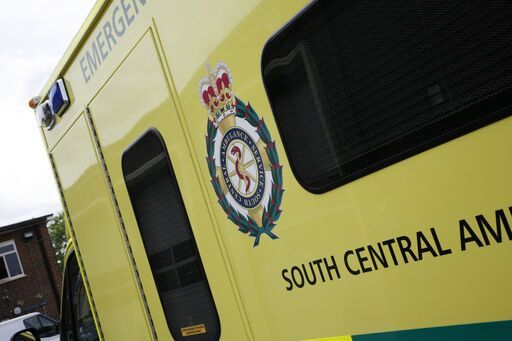Pressure has been high across all of our services including 999, 111 and patient transport over the past year – at times at unprecedented levels. Our frontline ambulance crews, 999 and 111 call handlers and the many other teams who ensure we can respond to patients as quickly as possible have worked extremely hard to manage that increased demand for our services.
During these periods of time the Trust has operated consistently at “extreme pressure” which is known within the ambulance service as Resource Escalation Action Plan (REAP) Level 4.
On 24 January, after a brief drop to Level 3, SCAS lowered the Trust’s REAP level to Level 2 for the first time since May 2021 – moderate pressure – due to a reduction in 999 and 111 demand, good staffing cover across our services and a continuation of significantly reduced handover delays at hospitals which releases our crews for other patients who need us.
To recap on December, at the peak of intensity when a critical incident was declared on 19 December, 999 calls were up 50% on the same time the previous year and 111 calls were up 75% over the same period.
The latest publicly available NHS performance data shows a much-improved picture at SCAS compared to December:
- Category 1: Much improved performance at 7:50 (third best in country) down from 10:55
- Category 2: Much improved at 21:36 (best in country) down from 54:02
- Category 3: Much improved at 01:03:41 (third best in country) down from 03:58:24
- Category 4: Much improved at 01:20:41 (third best in country) down from 04:30:46.
To find out more about call categories click here.
Cardiac arrest survival – SCAS remains the Trust with the highest survival rate, to leaving hospital, of 10.2% after three months’ data. The England average is 7.8% and the lowest rate is 6.1%. The next set of data will be released on 09 March. To view data please click here.
However, recent improvements in performance and reduced demand could change in an instant so we are carefully monitoring demand, performance and resourcing across 999 and NHS 111 to enable us to respond quickly to fluctuations. We are also contending with the ongoing impact of industrial action.
As always, we continue to prioritise ambulance responses to the most seriously ill and injured patients but there are other and often better options for people to get the medical care they need which can help to reduce some the of pressure we face.
The public has helped to play its part after a really challenging end to 2022 by using NHS 111 online for medical advice where possible (or calling 111 if unable to access 111 online), calling 999 in life threatening cases – and only calling back if their condition worsens – and by getting their flu and covid vaccinations. We need this to continue.
We have also been working closely with our hospital partners to continue to reduce handover delays and are working on many initiatives with partners to improve the patients experience and ensure that patients get the most appropriate response – such as basing paramedics in emergency departments known as hospital ambulance liaison officers (HALOs).
We thank our staff and volunteers for the extraordinary efforts they have made so far and continue to. Impacts to staff continue to be felt but we have focused on increasing our range of health and wellbeing initiatives and are supporting staff by reducing shift overruns and missed meal breaks, as well providing meals and refreshments.

